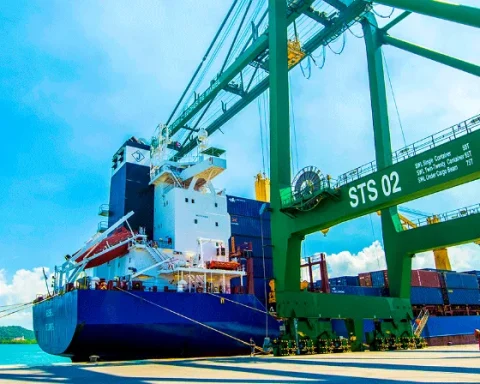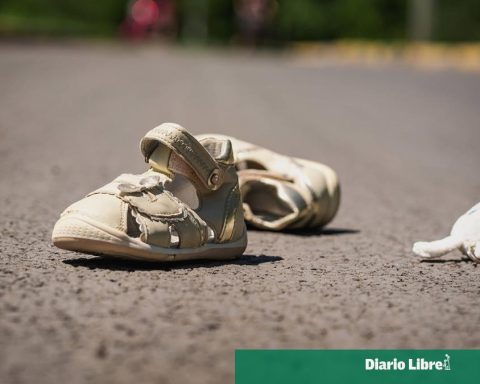Uruguay positioned itself as the second Latin American country and the 34th in the world in economic freedomsaccording the 28th edition of the Index of Economic Freedom of the American Foundation Heritage Foundation, achieving 70.0 points. With this score, she was positioned below the United Arab Emirates (70.2) and above Japan (69.9), and considered mostly free again after 11 years.
the ranking evaluates 12 types of economic freedoms in 184 countriesscores them and, based on that score obtained, they are categorized as: free, mostly free, moderately free, mostly not free, or repressed freedoms.
In Latin America, Uruguay was only surpassed in the ranking by Chile, which ranks 20th worldwide. These two were the only Latin American countries categorized as mostly free, and none in the Americas entered the category of free countries. Peru (51st), Costa Rica (55th), Panama (56th), Colombia (60th), Mexico (67th), Guatemala (69th), Dominican Republic (71st) and Paraguay (73rd) are those who make up the moderately free group. Those categorized as mostly not free are El Salvador (90th), Honduras (92nd), Nicaragua (122nd), Ecuador (126th), Brazil (133rd), and Argentina (144th). The three countries on the continent with repressed freedoms are Bolivia (169th), Cuba (175th) and Venezuela (176th), according to Rosendo Fraga, director of the Nueva Mayoría Study Center.
Thus, the report shows that 42% of Latin American countries have a moderately free economy, 32% a mostly non-free economy, 16% have no economic freedoms and only 10% live in a mostly free economy.
The study categorizes the 12 economic freedoms into four pillars: rule of law, government size, regulatory efficiency and open markets.
The first category, “rule of law,” encompasses respect for property rights, judicial effectiveness, and government integrity. In respect to property rights, Uruguay had an increase of 15.9 points (from 68.1 to 84.0) compared to the last edition, being the only one in Latin America that was considered a free country. Judicial effectiveness also improved (from 66.8 to 80.4), but government integrity fell from 75.7 in 2021 (its best year) to 75.2. The report explains that “contracts and security rights over property are recognized and enforced by law, most of the land has a clear property title, and the judiciary is transparent and independent, but the courts function with slow and can be intimidated.” Finally, it is highlighted that to prevent bribery and other corrupt practices, anti-corruption statutes are used.
The second pillar, which concerns the size of government, measures the fiscal burden, government spending, and fiscal health. Due to its tax burden, Uruguay obtained 72.4 points, its lowest score since 1995. The score has been falling since 2018 (78.0 points), although its best year was 1998 (88.6). Due to his fiscal health, he obtained 75.2, a drop of 5.3 compared to 2021, his best year (80.5). Government spending reported an increase in score (from 66.9 to 70.2) and exceeded 70 points for the first time since 2011, according to Fraga.
The regulatory efficiency pillar assesses business freedom, labor freedom, and monetary freedom. Labor freedom fell from 70.5 to 60.3, its lowest score since 2005. The report states that, despite political and macroeconomic stability, geographic location, and government incentives to invest, “the costs are high and aggressive labor and union conflicts can arise.” Monetary freedom also fell, from 72.5 to 70.9, although it is still above 70 points since 2005. Finally, business freedom in Uruguay improved 3.4 points, from 72.3 to 75.7, reaching his best historical score. The Index highlights regulations in Uruguay, which are among the most transparent in South America.
The last pillar refers to open markets, and measures trade freedom, investment freedom and financial freedom. Freedom of trade had a decrease of 0.4 points, totaling 70.4. (his best score was 83.4 in 2009). Its investment freedom also fell, with 75 points, since it had been achieving 85 since 2017. Uruguay’s financial freedom remains stagnant at 30.0 points, a constant value since 2006 (before that, its best year was 70.0). in 2003). The report highlights that “foreign investors receive the same treatment before the law as national investors, there are no property limits in most sectors and the financial sector is open”, but warns about the participation of the State in the property and the allocation of credits and the underdevelopment of capital markets.
The study concluded that “the Uruguayan economy grew slowly from 2017 to 2019, before contracting in 2020 and recovering the following year.” In addition, he considered that economic freedom stagnated during this time, although it “conquered advances in the rule of law that were able to compensate for the decreases in the freedom of international trade and the freedom of investment.” Uruguay recorded a 0.3 point overall gain in economic freedom since 2017 and entered the mostly free category for the first time since 2011. It also mentions that “fiscal health and business freedom are relatively strong, but financial freedom is lacking.”
As the report warns, most of the data used for this year’s edition belongs to the second half of 2020 and the first half of 2021.
















